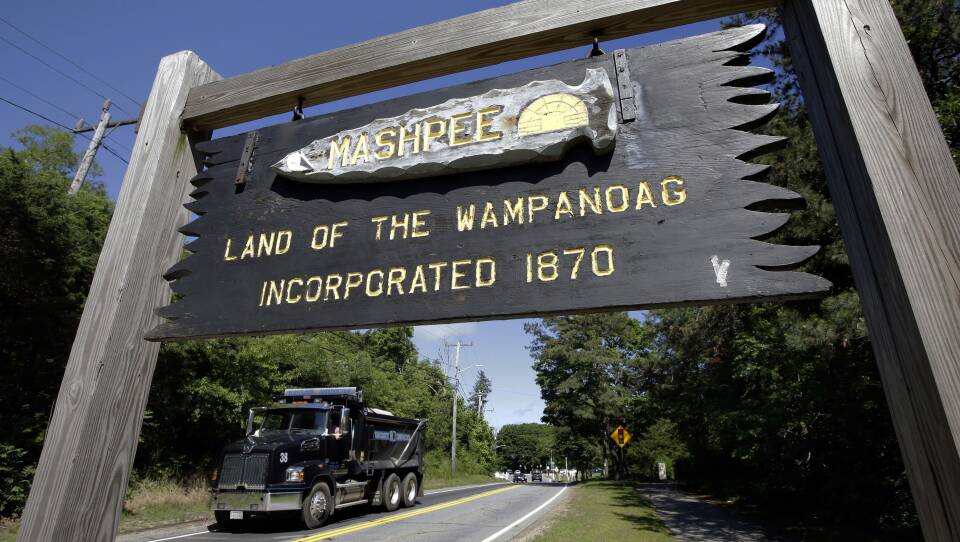Brian Moskwetah Weeden won a four-person race last month to become the new chair of the Mashpee Wampanoag Tribal Council. The former chariman, Cedric Cromwell, was removed from his post after being indicted for his alleged role in a bribery scheme involving the tribe's plans to build a casino in Taunton.
Weeden, 28, is the youngest person to hold the position of tribal council chair. He joined Boston Public Radio on Tuesday to speak about his hopes for the tribe and the issues he aims to lead on.
The Mashpee Wampanoag community was in need of new leadership and change, Weeden said, particularly after the former charman was removed and indicted.
"The community needs to heal, and I think that one of the problems of our former leadership was the disconnect with them, and not listening to the people," he said. "That's something that we plan on restoring by listening to our clan mothers, our spiritual leaders, our chief, our medicine man, all of our elders. That's what we're trying to do with restoring the integrity of the tribe and just leading from the heart."
Building a tribal casino in Taunton has been in the works for over a decade. Weeden says that he'll look to the community on whether to proceed with the project.
"I think a casino is a small drop in the bucket when we're talking about services and other economic development the tribe can do," he said. "Casinos are just the easiest thing for tribes to go at, however what's supposed to be easy has been very challenging for our tribe and our people, so I think it's best to just reassess everything and see what the community wants to do."
Overdevelopment has caused Mashpee's waters to become some of the worst quality waters in the commonwealth, Weeden noted. He hopes that plans for a wastewater treatment plant will be established.
"A lot of our elders say the river was clear and you could see the bottom of it. That's not the case anymore," he said. "A lot of our fish aren't here, we have a lot of contamination. We're not able to get some of our ancestral foods that we'd traditionally eat. We have to go elsewhere. We need to work with our neighbors on preserving our waters and land for future generations."





